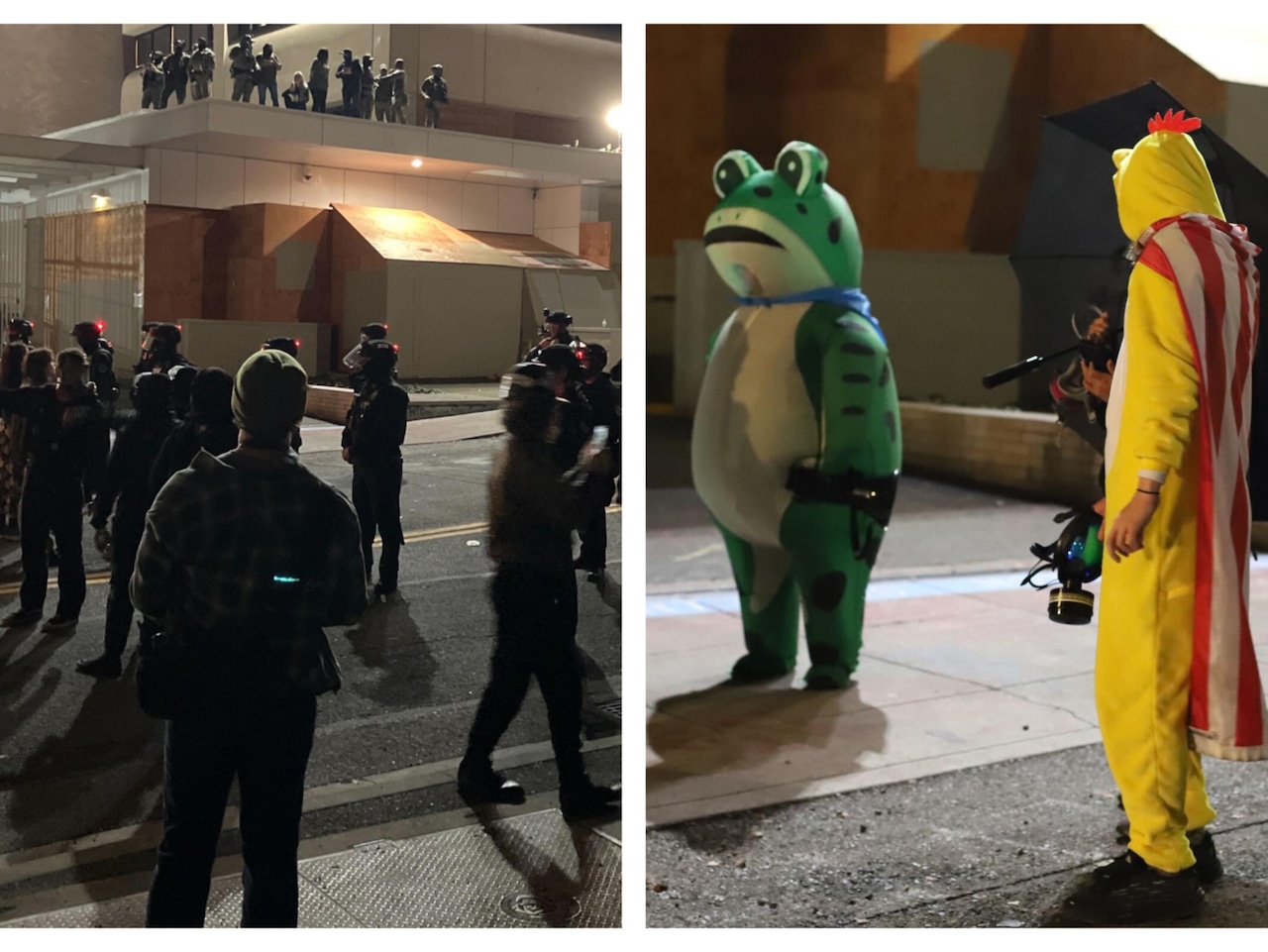A court hearing Friday morning could change the direction of the president’s plans to deploy soldiers to Portland.
U.S. District Judge Karin J. Immergut heard arguments from the City of Portland and Oregon Department of Justice lawyers, and counter-arguments from the U.S. Department of Justice, beginning at 10 a.m. Friday.
Immergut — who was appointed to the federal bench by President Donald Trump in 2019 — could decide to grant the city’s wish and file a temporary restraining order blocking the further mobilization of 200 federalized soldiers from the Oregon National Guard.
On the other hand, she could also find the president’s actions lawful, or simply wait to issue a ruling at a later time of her choosing.
At the conclusion of Friday’s hearing around 11:45 a.m., Immergut said she would “make a decision very quickly.”
Despite crowd sizes that would have barely rated notice in 2020, tensions continue to rise at the U.S. Immigration and Customs Enforcement facility in South Portland. Both federal agents and Portland police officers made arrests late Thursday. Among them was a conservative journalist arrested by local police, leading to howls of outrage from the right.
The decision before Immergut hinges less on the details on one specific night and more on whether Portland will suffer irreparable harm by allowing in the guard, as the city and state’s lawyers maintain.
“Plaintiffs seek to protect their sovereignty, retain control over local law enforcement and public safety, and prevent unnecessary disruption to Oregon’s largest city,” according to their filing.
In sworn affidavits, top Portland commanders have testified that they had the protests well under control and had made roughly two dozen arrests during the first few months of the nightly encampment, which began in early June.
The protests had become sleepy affairs, the officials said, and the crowd control unit was no longer necessary.
Federal officials, however, say they were largely abandoned by Portland police, who had been ordered not to aid Federal Protective Service agents under rules banning the police from assisting in immigration enforcement.
Federal officers have been assaulted, had their identities exposed online, and crowds have also smashed windows, sprayed graffiti and even tried to tear up buried internet cables in order to hinder operations, according to the feds.
The ICE office was closed for several weeks in the early days of the encampment.
Federal lawyers say the guard deployment is only a token force necessary to protect federal buildings due to local officers’ failure to act.
“The Guard will only be protecting federal property and personnel — not engaging in law enforcement — and they will certainly not be exercising any police powers customarily performed by the State,” their brief said.
If you purchase a product or register for an account through a link on our site, we may receive compensation. By using this site, you consent to our User Agreement and agree that your clicks, interactions, and personal information may be collected, recorded, and/or stored by us and social media and other third-party partners in accordance with our Privacy Policy.

